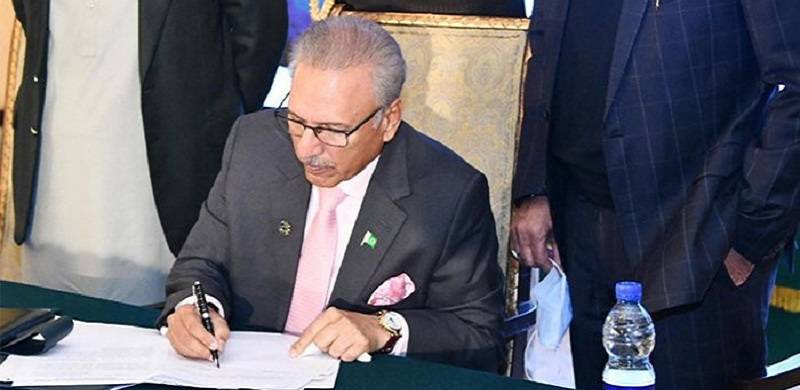
Islamabad High Court Chief Justice Athar Minallah has remarked that the ordinance amending the Prevention of Electronic Crimes Act (PECA) was promulgated in violation of Article 89 of the Constitution, as a session of the National Assembly had been convened earlier, on the same day.
At a hearing on Friday, the IHC heard multiple petitions filed by media bodies, journalists, and political leaders challenging the PECA Ordinance. The IHC Chief Justice questioned both the manner in which the ordinance was promulgated, as well as its intended impact.
Senior lawyer Munir A Malik had told the bench that on the day the ordinance was promulgated, a meeting of the lower house was also convened. Article 89 of the Constitution holds that a presidential ordinance can only be promulgated in matters of urgency and when parliament is not in session.
“The president issued the ordinance by apparently ignoring parliament," the chief justice was quoted as saying in the Tribune.
Furthermore, Chief Justice Minallah interrogated why the ordinance seemingly focused on social media. “Why blame social media? If the values of the society are bad, should the Constitution be abolished?” he asked.
Representing the government, the assistant attorney general (AAG) assured the court that the government was not afraid of 'positive' criticism, although it was unclear who would decide whether criticism was deemed positive or negative.
The court will hear further arguments from the government during the next hearing on March 30.
At a hearing on Friday, the IHC heard multiple petitions filed by media bodies, journalists, and political leaders challenging the PECA Ordinance. The IHC Chief Justice questioned both the manner in which the ordinance was promulgated, as well as its intended impact.
Senior lawyer Munir A Malik had told the bench that on the day the ordinance was promulgated, a meeting of the lower house was also convened. Article 89 of the Constitution holds that a presidential ordinance can only be promulgated in matters of urgency and when parliament is not in session.
“The president issued the ordinance by apparently ignoring parliament," the chief justice was quoted as saying in the Tribune.
Furthermore, Chief Justice Minallah interrogated why the ordinance seemingly focused on social media. “Why blame social media? If the values of the society are bad, should the Constitution be abolished?” he asked.
Representing the government, the assistant attorney general (AAG) assured the court that the government was not afraid of 'positive' criticism, although it was unclear who would decide whether criticism was deemed positive or negative.
The court will hear further arguments from the government during the next hearing on March 30.

